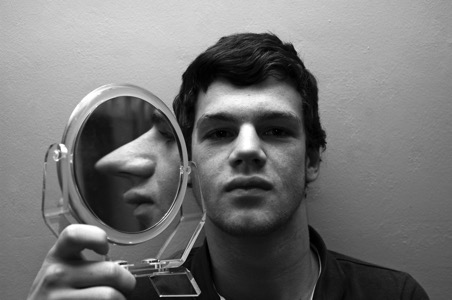Spider season is approaching!
02/10/16 12:12

Practically every year as summer waves goodbye and autumn re introduces itself with a hint of cooling and wetter weather, I can get my calendar out and circle some key dates. What dates you ask? The dates in question are during September and reflect the start of spider season and dates which invariably result in people calling up a service like mine and seeking help for this uninvited ‘terror’. Spiders suddenly seem to be crawling out of the woodwork and terrifying the nations many sufferers. The truth is of course that spiders don’t just appear in autumn and are always present throughout the year but just like anything we give focus to, we are more likely to notice them if we choose to and certainly more because we believe autumn is the worst time for spiders. Unfortunately when we have had a wet summer the chance of noticing these little visitors is more likely but you know that already so what’s the point of my blog?
Spider phobia or as you already know it, arachnophobia, affects 55% of women and 18% of men in the UK. It is a real phobia in the sense that it causes all the symptoms of panic and triggers the freeze, flight and fight response in the sufferer which is hard wired for impending danger and a need to defend oneself from attack. Truth is of course that in our country the number of truly ‘dangerous’ spiders amounts to 0.01 % and even then none of those breeds are found in the typical house spider which is what we are talking about here. When it comes to be scared of spiders our irrational minds, also known as our limbic response builds a picture of the spider being a much bigger entity than it actually is, whether that’s the body, movement, legs, we tend to experience a perception of a creature that belongs more in a 60s horror film rather than reflecting the wholly non threatening insect it actually is. So why is a tiny insect that’s only function is to hide and survive and an insect that certainly has no mission for human domination such a perceived problem. Let's not fool ourselves, spiders are not very attractive and certainly wouldn't win any beauty pageants but they are also not the monster our minds tell us they are. Spider phobia, like most phobias is nine times out of ten born out the unfortunate association we make with them at moment in time, usually childhood when a spider may have caught our eye and caused a spontaneous moment of panic which resulted in the release of the threat hormones cortisol and adrenalin. Now as adults our conscious brains may have forgotten that experience, but since that point when we may have been too young and defenceless to rationalise the startled feelings, we therefore get good at over generalising every future experience which involves an encounter with any spider and those old feelings just reinforce the already negative learning and so the phobia around spiders is born.
But it doesn’t end there. Once a person declares themselves a spider phobic, they begin projecting into the future, creating an anticipation of how they are likely to feel when encountering the next spider even though they haven’t even seen one. In other words, they anticipate anxiety before even having any justification for this belief. Then again, why would they feel any other way. Every single experience in spiders has never been a positive one and they have had no way of rationalising or neutralising these thoughts to create a more positive point of reference and so the phobia seems incurable and debilitating. The end result is more often than not an over anxious person, especially around this time of year, who is constantly on guard and worried. When, God forbid, a person actually encounters a spider then they have to get someone else to remove it or they never enter that room again. This of course is all too common for anyone who identifies with this unfortunate limiting belief.
So can it be dealt with. Can you be spider phobia free, and be cured? The simple answer without any doubt whatsoever is YES. That’s where I come in. Here at the Cumbria Hypnosis Clinic we recognise the fact that spider phobia is a construct of the emotional sub conscious brain. That being the case it is also true that is has been programmed through experience and memory to believe spiders are a threat, therefore the emotional, irrational brain can also be re-programmed through a number of psychological processes to recognise new and more empowering feelings around the encounter, whether in reality or just imagined, with a spider. The sub conscious, responsible for the majority of our independent, thoughts, feelings and emotions can be imprinted with a new set of reference points which teach the individual suffering with the phobia to recognise the thought of a spider is simply not resulting in any anxious feelings, no sense of impending doom and there can even be a sense of feeling more and more relaxed around the very thought of the spider and experience which practically wipes clear the old connection and replaces it with thoughts of confidence and being able to function.
"Since seeing David I have been free from my fear around spiders for more than four years. My husband mentioned it was that time of year again the other day and I hadn't even realised nor was I bothered. Anyone thinking about this, all I can say is give it a go, it worked for me" Jane S (Windermere Cumbria)
What I teach you is set of practical, no nonsense skills, which don’t require any effort, to help develop a sense of independence and confidence around thoughts to do with spiders. This process is highly effective and permanent for more than 85% of the population. If you have been a sufferer or you are currently reading this and want to know more, then please click this link for more information and opportunity to have a free phone consultation. As with every treatment offered by Cumbria Hypnosis I offer the guarantee that if I don’t feel you qualify as one of the 85% then you won’t pay a single penny and so there is absolutely no risk for you if you are not completely sure this is is for you. Remember that any limiting belief you weren’t born with can be changed and removed so why continue suffering…..?
I look forward to being able to explain how I can help you.
Regards
David Faratian (NLP Practitioner and Clinical Hypnotherapist)
Eliminating fear of heights with hypnosis
29/04/16 08:31

Jim from Windermere in Cumbria approached me very recently for his fear of heights. Like so many people with phobias, Jim had an irrational understanding of his problem. Having not been born with this problem, Jim had spent a good part of his life with no issue whatsoever. In fact part of his life had been spent as a fireman and so heights were a natural part of his reality and his experience. Unfortunately this was all to end once he encountered a one off experience which locked itself in as a limiting belief around heights. The detail of the trauma is not as significant as the new reality it created. From that point onwards Jim was able to activate his reticula memory so that every height was generalised as a problem. Through the reframing of his experience with Hypnotherapy Jim was able to not only neutralise and own the feeling rather than run away from it but he was also able to neutralise the spontaneous release of adrenaline associated with the phobia. You can listen to, and watch Jim talk about his experience with hypnotherapy when dealing with his fear of heights. In the interview you can find out about how Jim overcame his fear of heights once and for all and watch him as he demonstrates his new-found confidence.
Some recent photos sent by Jim demonstrating his new found confidence. These photos were taken from the top of Barnard castle. Thank you to Jim for agreeing to share his experience.

If you are struggling with a particular phobia and would like to know how Hypnotherapy may be able to help then click on the following link for more information.
5 ways to detect if someone is lying
10/03/16 10:02

One of the many skills of human survival has been a person’s ability to tell a lie. We often lie to protect ourselves or others from being emotionally injured in some way. Of course lying has also got a darker side where deception is the main goal, whether to commit and cover up inappropriate actions or else to deceive and manipulate. However, there is one thing that will always be true and that is the fact that most people cannot help but give away their lie through the 80% of non verbal communication, which we as human beings are all hard wired for. You see you may be able to deceive through your words but there are always trails of deception communicated through other unconscious cues.
In a study of non-verbal cues that are signs of lying, researchers say rubbing, touching, or blowing the nose are all ways to tell if someone’s lying. When it comes to detecting a lie, scientists believe, stress causes an increase of blood to the extremities which causes tingling in the nose. This explains why people tend to rub their noses when they are feeling uncomfortable in some way. Of course other areas of our bodies are equally able to betray a lie, especially the eyes. Have you ever watched someones eyes? Sometimes people don’t realise how the direction their eyes move when done subconsciously can tell a great deal about whether what they are saying is created or remembered. You can learn more by watching this short video https://www.youtube.com/watch?v=0dNg5gi_-dY
Other common signs that someone could be lying to you:
- Tripping over words and using ‘um’ or ‘uh’ as filler words
- Long pauses before answering
- Evading the question
- Using ‘well’ at the beginning of a sentence
- Use of the words ‘no,’ ‘do not,’ or ‘cannot’
- Higher pitch/tone of voice
- Keeping eye contact longer than usual
- Folding arms
- Touching throat (for women this is a sign of lying)
- Holding something in front of them, like a piece of paper
- Clasping hands together
- Positioning feet towards the exit
- Hand gestures don’t match what is being said
- Not using any hand gestures
- Blinking often
- Moving the fingers
At the Cumbria Hypnosis Clinic we use some of the eye accessing cues you have just read about to deal with emotional blocks, anxieties and fears. If you would like to find out how an unconscious movement of the eyes which can be used to detect a lie can be equally effective at dealing with emotional problems then please feel free to Contact us following the link on this page..
Why hypnotherapy can effectively remove fear
07/07/15 10:51

Hypnosis can play a powerful role in dealing with most fears and phobias. The reason it is so effective is because when we are scared of something we initially create a picture of that particular fear in our minds. This in turn triggers the fight or flight response which everyone commonly knows as adrenaline. The problem is is that very often any kind of anxiety based fear which can also result in inappropriate panic attacks is based on thousands of years of evolution where we were initially primed to have this fight or flight response facing real danger, like maybe running away from some kind of ferocious predator. Although the time has passed where we are facing man eating monsters on a day to day basis, that fight or flight response is still conditioned through evolution and can trigger unnecessary fear even though there is no immediate danger.
Through hypnosis and neuro-linguistic programming NLP, the subject can be trained to have exactly the same thoughts but without the same emotional response. This means that the person suffering from a fear of flying, or spiders or a fear of needles or dentists can still think about those experiences but the emotional link is broken and once the neurological link is removed so too is the release of adrenaline which then allows the person to have a much more relaxed, comfortable, and controlled response to the initial fear. In effect the phobia, the anxiety and the panic attack can be instantly eradicated. Moreover, once the subject recognises the fact that they are able to have the same thoughts without the same feelings then naturally the new pattern of confidence develops.
Here at the Cumbria Hypnosis Habit Change Clinic we help people to deal with a full range of fears and phobias using a unique blend of different tools including hypnosis. If you are suffering from a similar condition and would like to know more then you can visit our dedicated link on anxiety which will give you a lot more information about the service we provide.
David Faratian (NLP Practitioner and clinical hypnotherapist)


